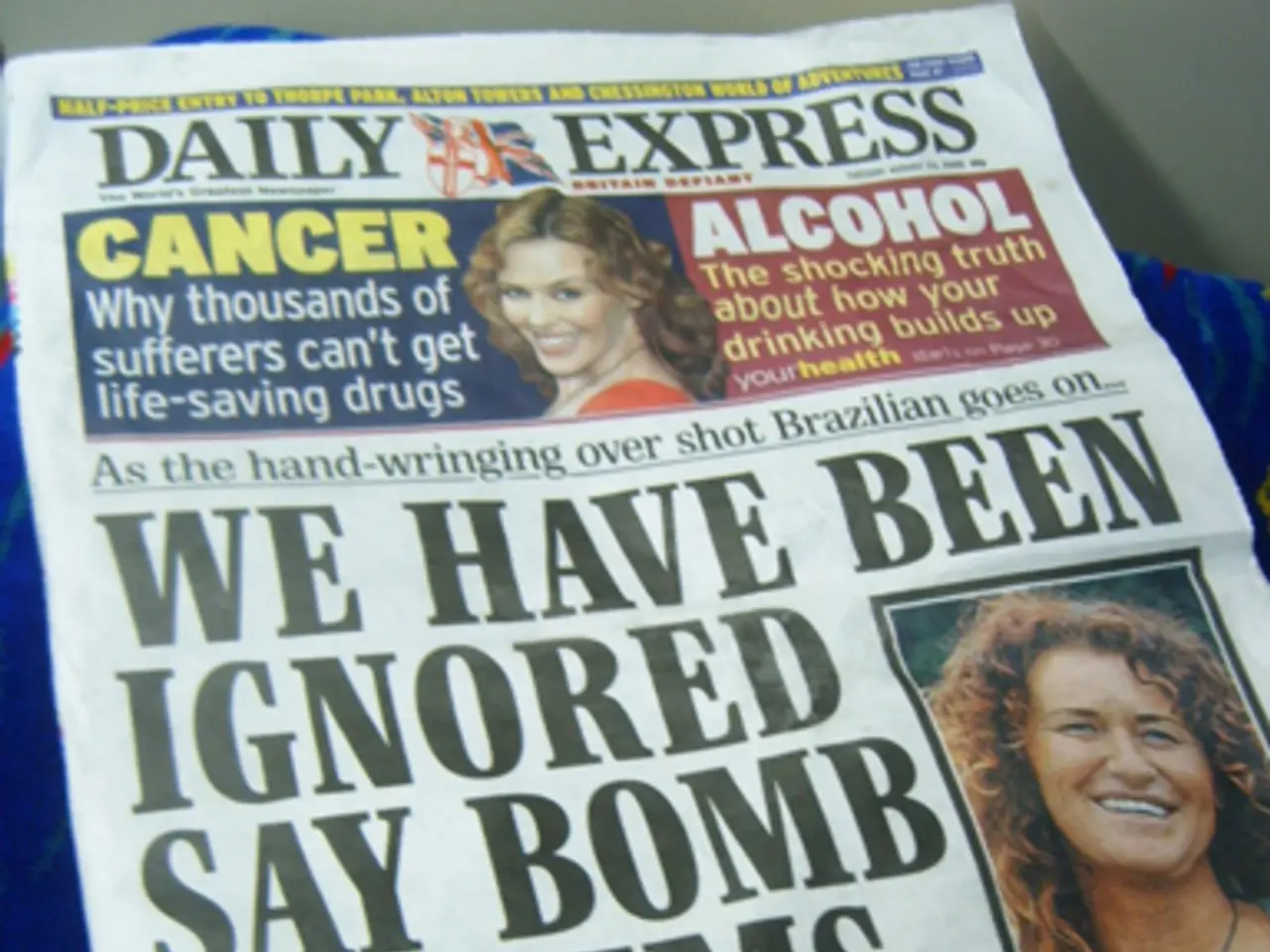"Abduction Chronicles: The Series 'Kidnapped'"
In July 2017, a chilling event unfolded in Milan, Italy, as 20-year-old British model Chloe Ayling was kidnapped under false pretenses[1]. Lured to the city by her agent, Phil Green, for a fake motorbike photoshoot, Ayling found herself in the clutches of two masked men who drugged her with ketamine and bundled her into a suitcase[2].
The kidnappers, Polish brothers Lukasz and Michal Herba, claimed that Ayling had been abducted by a mafia organization called the "Black Death Group" and threatened that she would be sold as a sex slave on the dark web if a €300,000 ransom was not paid[1][3]. Ayling was taken about 120 miles to a remote farmhouse near Turin where she was held captive for six days[2][1].
During her captivity, Ayling was brainwashed to believe that Lukasz Herba was the only person who could help her escape and therefore did not seek help when seen out shopping during her captivity; this was captured on CCTV and helped lead to Herba’s arrest at the British consulate in Milan on 17 July 2017, six days after the abduction[1][2].
Following her release, Ayling faced significant media scrutiny and public disbelief, with some speculation fueled by her kidnappers’ defense that the incident was a publicity stunt to advance her career[3][4][1]. Ayling has spoken publicly about the emotional toll of the event and the skepticism she endured, describing in interviews and a BBC drama how difficult it was to relive her trauma and defend the truth of her experience[3][4][1].
Despite the BBC series and her court testimony, Ayling's story continues to be doubted in online posts[1]. The series suggests that the tabloid media plays a role in perpetuating violence against women, highlighting the immense difficulty of fighting back against structural violence against women[5]. It also explores the role of the media in shaping narratives and its impact on victims of violence[6].
The kidnapping occurred during a supposed photoshoot at a fake agency, and Ayling was overpowered, injected with ketamine, and taken to a remote house in Piemont[1]. After a week, Ayling was released near the British Embassy in Milan[1]. The series depicts Ayling coming under increasing pressure from her agent to speak to the press, the tabloid media courts Ayling, later condemning her for it, resulting in an absurd reversal of victim and perpetrator[7].
Ayling became an online target for frustrated men and a focal point for pent-up hatred[8]. The tabloid media shapes narratives in pursuit of ratings, thereby perpetuating violence against women[9]. The six-part BBC series "Kidnapped: The Chloe Ayling Story" aims to tell the true events of her kidnapping and the media scrutiny she faced[10]. Through this series, Ayling's story serves as a stark reminder of the challenges faced by victims of violence and the power of the media in shaping public perception.
- In the intricate landscape of pop-culture and general-news, Chloe Ayling's harrowing story of kidnapping has found a place, being debated and analyzed alongside crime-and-justice narratives.
- Beyond the sensational headlines and celebrity gossip, Ayling's ordeal also reveals a disturbing aspect of entertainment – the tabloid media's role in perpetuating violence against women and skewing narratives.
- As Ayling navigates her newfound status as a public figure stemming from a traumatic event, she struggles not only with her own emotional recovery but also with the constant scrutiny from the entertainment world, highlighting the intersection between pop-culture and crime-and-justice.







